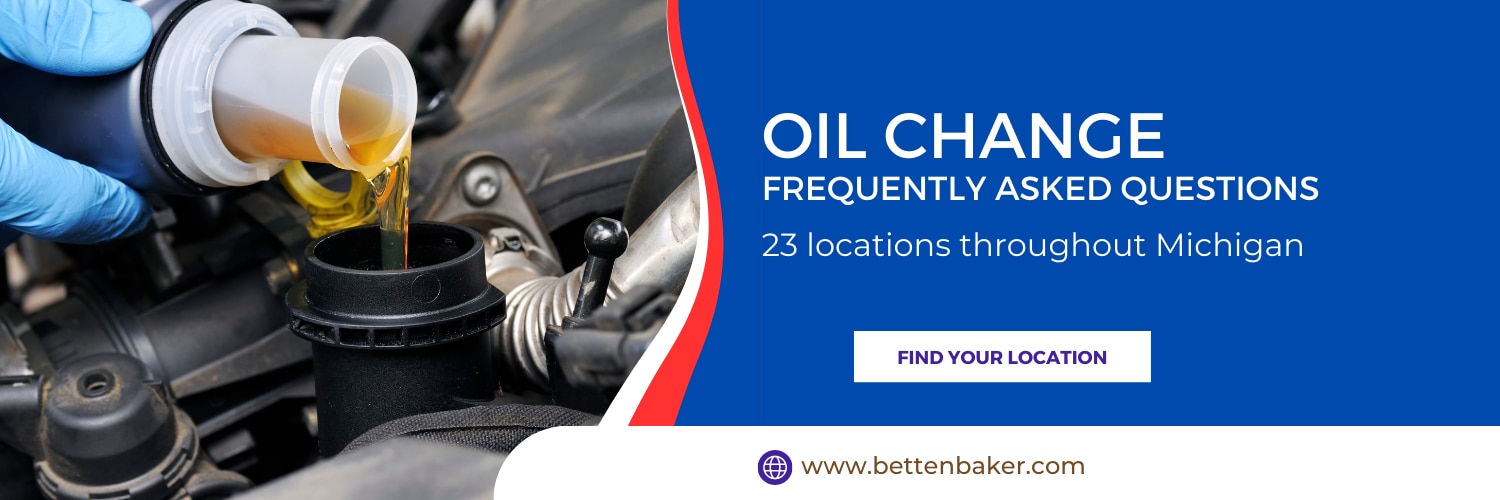
What does oil in a vehicle do?
A vehicle’s engine comprises many moving parts, such as pistons, crankshafts, and camshafts. These move very quickly, generating heat.
The oil in your car lubricates these parts, reducing friction and wear. It carries the heat away from the moving parts, dissipating it through the oil pan and oil cooler.
Oil also keeps your engine clean by carrying away the dirt and debris that would otherwise accumulate on engine components.
Why do I need an oil change?
The oil in your car becomes contaminated with dirt and debris over time. This reduces its effectiveness, so it’s less able to protect your engine’s components.
Regularly changing the oil means your car’s engine will be better protected from friction, wear, and heat. Therefore, it’s essential to keep up your vehicle’s oil change schedule.
How often do you need an oil change?
Every make and model of vehicle has a recommended oil change interval. Typical driving conditions can also affect how often you need an oil change. Check your car owner’s manual for the specific recommended oil change interval.
Generally, a car should have its oil changes every 5,000-7,500 miles or every six months, whichever comes first.
What is done during an oil change?
During an oil change, the old oil will be drained from the vehicle by removing the oil drain plug. The oil filter is usually replaced, too, so the accumulated contaminants aren’t re-introduced into the fresh oil.
Once the new oil filter is installed, fresh oil is added through the oil fill cap. The technician will check the oil level before starting the engine and checking for leaks.
If your car has an oil change indicator light or message, the mechanic will reset the time, so you’ll know when to change your oil next.
How long does an oil change take?
A typical quick lube service can perform an oil change in as little as 15 to 20 minutes. A comprehensive oil change at a dealership usually takes around an hour.
Often, drivers get their oil changes as part of regularly scheduled maintenance, so the mechanics can perform other steps on your car while it is being changed.
Should I use synthetic or conventional oil?
Conventional oil comes from crude oil extracted from the ground, whereas synthetic oil is made using a chemical process.
Synthetic oil generally protects your engine better than conventional oil. It can handle more extreme temperatures, and it lasts longer without needing to be changed. On the other hand, it’s typically more expensive than conventional oil.
Most modern vehicles can usually use either synthetic or conventional oil, but confirm compatibility in your owner’s manual.
Can I change my car’s oil myself?
Changing one’s car oil is not too difficult, but you must have the right tools and equipment. You’ll need an oil filter wrench, funnel, and drain pan, for starters. Usually, you’ll need a jack and jack stands to lift your vehicle off the ground, too.
Changing your car oil yourself can get messy. You must have enough suitable space to perform the oil change and wear protective clothing and eyewear.
Because of these complications, many people prefer to get their oil changed by a professional mechanic at a dealership or quick lube service, as it’s convenient.